The caregivers’ program is a set of pathways through which foreign caregivers can immigrate to Canada for permanent citizenship or to work temporarily.
Some of the pathways within the Caregivers’ program have recently been terminated. Information on terminated pathways has also been provided below, existing visa applications through these pathways will continue to be processed but no new applications through these will be eligible.
There are several different types of caregiver programs, they fall mainly into two categories depending on permanent or temporary permits that they provide:
These pilot programs are 5-year programs which replace the Caring for Children and Caring for People with High Medical Needs programs and have come into effect after June 18, 2019.
- These pilots are for caregivers and their families who satisfy the eligibility criteria and want to pursue a permanent citizenship in Canada. The applicant should either have been offered a job as a caregiver or have experience of working as a caregiver in Canada.
- The qualifying work experience for applicants should be as per the National Occupational Classification (NOC) codes specified below:
- NOC 4411 (Home child care providers): Child care providers who care for children and are responsible for their physical and social well-being and assist with household activities. Foster parents are not included for this pilot program.
- NOC 4412 (Home support workers, housekeepers and related occupations):Home support workers care for and act as companions for the elderly and other citizens in need of support. Housekeepers are not included in this pilot program.
According to the level of qualifying work experience, there are different ways in which applicants can apply. For admission through this pathway, the applicant must satisfy the following criteria:
- A language proficiency of Canadian Language Benchmark (CLB) of 5 or more.
- Valid and genuine job offer from a Canadian employer that is full-time.
- An education credential after at-least 1 year of post-secondary study in Canada or its foreign equivalent to be assessed during the visa application process.
- If the caregiver has no work experience in Canada, he/she has to first gain at-least 24 months of experience on a temporary permit and can then apply for a permanent residence.
Both programs have a cap of 2750 principal application submissions to be accepted in a year (a total of 5500 applications overall).
This pathway is closed for new applicants. Only applicants who have at-least 2 years of prior experience in the program can apply, as per either of the criteria below:
- The applicant should already be working in Canada in the Live-in Caregiver program
- The applicant was approved for a Live-in Caregiver work permit based on a Labor Market Impact Assessment prior to November 30, 2014.
This pathway was terminated on June 18, 2019. Applications submitted for the same before this date will continue to be processed. For qualifying for this pathway, applicants must satisfy the following criteria:
- At-least 24 months of Full-time work experience in the past 4 years in Canada in the following professions:
- Nurses and Psychiatric nurses (NOC 3012).
- Licensed practical nurses (NOC 3233).
- Nurse aides, orderlies and patient service associates (NOC 3413)
- Home support workers and related occupations (NOC 4412) except housekeepers.
- Having a valid medical license to practice in Canada if the applicant was working as nurses as in NOC 3012 & NOC 3233.
- Completed one-year of post-secondary education in Canada or Foreign equivalent.
- A language proficiency of Canadian Language Benchmark (CLB) of 7 or more for NOC 3012 and above 5 for NOC 3233, 3413 and 4412.
The Interim Pathway for Caregivers ended on October 8, 2019. Existing applications before the termination date will be continued in the processing pipeline.The pathway can only allow for residence outside the province of Quebec. For an applicant to be eligible for Interim Pathway for Caregivers, the applicant must have:
- A valid work permit or should have applied for extension of their work permit, except if the permit is in the Live-in Caregiver Program.
- Worked as a worker as part of Temporary Foreign Worker Program as a home child care provider (NOC 4411, except as foster parents), home support worker (NOC 4412, except as a housekeeper) or a combination of the two for at-least 12 months on a full-time basis before November 30, 2014.
- A minimum score of CLB 5 in English or NCLL 4 in French in four skills:
- Writing
- Reading
- Listening
- Speaking
- Earned a Canadian high school diploma or a foreign equivalent certified by an Education Credential Assessment (ECA).
Candidates who do not have an ECA can still apply for the pathway if they have applied to get an ECA before June 4, 2019, along with a proof for the said application.
Along with the Caring for people with High Medical Needs program, this pathway was terminated on June 18, 2019. Existing applications also continue to be processed. For qualifying for this pathway, applicants must satisfy the following criteria:
- Minimum 24 months of prior full-time experience in the past 4 years as home childcare provider as per NOC 4411, excluding foster parents.
- Same educational qualifications as in Caring for People with high Medical Needs Program for NOCs 3233, 3413 and 4412.
The caregiver can apply for extension of their work permit through the Temporary Foreign Worker Program. The application should be made at-least 30 days before the current work permit is about to expire. The employer, in this case will also have to apply for a Labor Market Impact Assessment.
The candidate can apply for a new work permit on satisfaction of either of the following criteria:
- The applicant is in Canada and is eligible to apply for a work permit inside Canada.
- The applicant is outside Canada and the employer has applied for a Labor Market Impact Assessment before June 18, 2019.
- The applicant will be working in Quebec.
Applications for new work permits for in-home caregivers have stopped being processed from June 18, 2019 if the applicant has applied from outside Canada, is applying through the Temporary Foreign Worker Program, will be working outside Quebec or the employer has applied for a Labor Market Impact Assessment on or after June 18, 2019.
*these pathways have been closed


